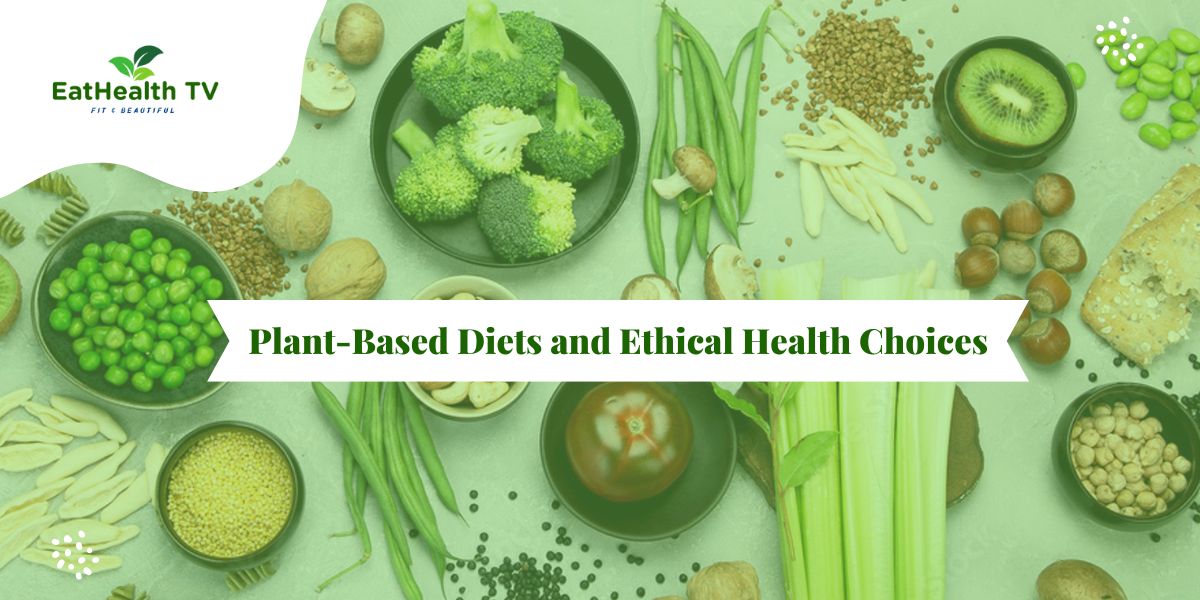Plant-Based Diets and Ethical Health Choices
Nourishing Your Body and the Planet: The Power of Plant-Based Diets

Plant-Based Diets and Ethical Health Choices: Nourishing Your Body and the Planet
In recent years, there has been a significant shift towards plant-based diets, driven by concerns about health, environmental sustainability, and animal welfare. A plant-based diet focuses on consuming foods derived from plants, such as fruits, vegetables, grains, nuts, and seeds, while minimizing or excluding animal products like meat, dairy, and eggs. This comprehensive guide explores the benefits of plant-based diets for both personal health and ethical considerations, providing insights from 12th-grade students to experts.
Understanding Plant-Based Diets
What is a Plant-Based Diet?
A plant-based diet is centered around foods derived from plants, including fruits, vegetables, whole grains, legumes, nuts, and seeds. It prioritizes nutrient-rich, whole foods while minimizing or eliminating animal products such as meat, dairy, and eggs. Plant-based diets can vary in their strictness, ranging from vegetarianism, which excludes meat but may include dairy and eggs, to veganism, which excludes all animal-derived products.
Health Benefits of Plant-Based Diets
Plant-based diets offer numerous health benefits, including:
- Heart Health: Research suggests that plant-based diets are associated with a lower risk of heart disease, high blood pressure, and cholesterol levels. The abundance of fiber, vitamins, minerals, and antioxidants found in plant foods supports cardiovascular health.
- Weight Management: Plant-based diets tend to be lower in calories and saturated fats while being higher in fiber and complex carbohydrates. This can aid in weight management and promote a healthy body weight.
- Lower Risk of Chronic Diseases: Studies have shown that plant-based diets are associated with a reduced risk of chronic diseases such as type 2 diabetes, certain cancers, and obesity. The nutrient-rich nature of plant foods supports overall health and reduces the risk of disease development.
- Improved Digestion: The high fiber content of plant-based diets promotes healthy digestion and regular bowel movements, reducing the risk of constipation and other digestive issues.
- Enhanced Longevity: Some research suggests that plant-based diets may contribute to increased longevity and a lower risk of premature death, likely due to their protective effects against chronic diseases.
Ethical Considerations of Plant-Based Diets
Beyond personal health benefits, plant-based diets also raise important ethical considerations related to animal welfare, environmental sustainability, and social justice:
- Animal Welfare: Adopting a plant-based diet reduces the demand for animal products, thereby reducing the number of animals raised and slaughtered for food. This aligns with ethical principles of compassion and minimizing harm to sentient beings.
- Environmental Impact: Animal agriculture is a leading contributor to environmental degradation, including deforestation, water pollution, greenhouse gas emissions, and habitat destruction. By reducing or eliminating animal products from their diets, individuals can reduce their environmental footprint and promote sustainability. Just as we know Plant-Based Diets: Physiology and Health Benefits of Vegetarian and Vegan Lifestyles
- Resource Conservation: Plant-based diets require fewer resources, including land, water, and energy, compared to animal-based diets. By shifting towards plant foods, individuals can help conserve natural resources and mitigate the environmental impact of food production.
- Social Justice: Plant-based diets can contribute to greater food security and social justice by reducing the demand for land-intensive animal agriculture. This can free up land for growing crops to feed human populations, addressing issues of hunger and food inequality.
Tips for Adopting a Plant-Based Diet
Transitioning to a plant-based diet can seem daunting at first, but with proper planning and knowledge, it can be both enjoyable and rewarding. Here are some tips for making the switch:
- Start Gradually: Consider gradually reducing your consumption of animal products while increasing your intake of plant foods. Start by incorporating more fruits, vegetables, whole grains, and legumes into your meals.
- Experiment with New Foods: Explore the wide variety of plant-based foods available, including exotic fruits, ancient grains, and plant-based protein sources like tofu, tempeh, and legumes. Experiment with different recipes and cooking techniques to discover new flavors and textures.
- Educate Yourself: Learn about the nutritional aspects of plant-based diets to ensure you are meeting your nutrient needs. Pay attention to key nutrients like protein, iron, calcium, vitamin B12, and omega-3 fatty acids and explore plant-based sources of these nutrients.
- Plan Balanced Meals: Aim for a balanced diet that includes a variety of plant foods to ensure you are getting all the essential nutrients your body needs. Include a mix of fruits, vegetables, whole grains, legumes, nuts, and seeds in your meals.
- Seek Support: Connect with others who follow plant-based diets for support and inspiration. Join online communities, attend cooking classes, or participate in plant-based challenges to stay motivated and learn from others.
The Future of Plant-Based Diets
Growing Popularity
Plant-based diets are gaining popularity worldwide, driven by increasing awareness of their health, environmental, and ethical benefits. As more people adopt plant-based lifestyles, the demand for plant-based products and alternatives continues to grow, leading to greater availability and accessibility.
Innovation in Plant-Based Foods
The rise of plant-based diets has spurred innovation in the food industry, leading to the development of a wide range of plant-based products and alternatives. From plant-based meats and dairy substitutes to vegan cheeses and egg replacers, there are now more options than ever for those following a plant-based diet.
Influence on Food Culture
The growing popularity of plant-based diets is reshaping food culture and culinary traditions around the world. Restaurants, food manufacturers, and chefs are incorporating more plant-based options into their menus, catering to the increasing demand for plant-forward dining experiences.
Sustainability and Environmental Impact
Plant-based diets play a crucial role in promoting environmental sustainability and mitigating the impact of food production on the planet. By reducing reliance on animal agriculture and shifting towards plant foods, individuals can contribute to a more sustainable food system and help combat climate change.
Conclusion
Plant-based diets offer a multitude of benefits for both personal health and ethical considerations. By prioritizing plant foods and minimizing or eliminating animal products from our diets, we can improve our health, reduce our environmental footprint, and promote compassion towards animals. Whether you’re a 12th-grade student or an expert in the field, embracing a plant-based diet is a powerful step towards a healthier, more sustainable future for ourselves and the planet.




